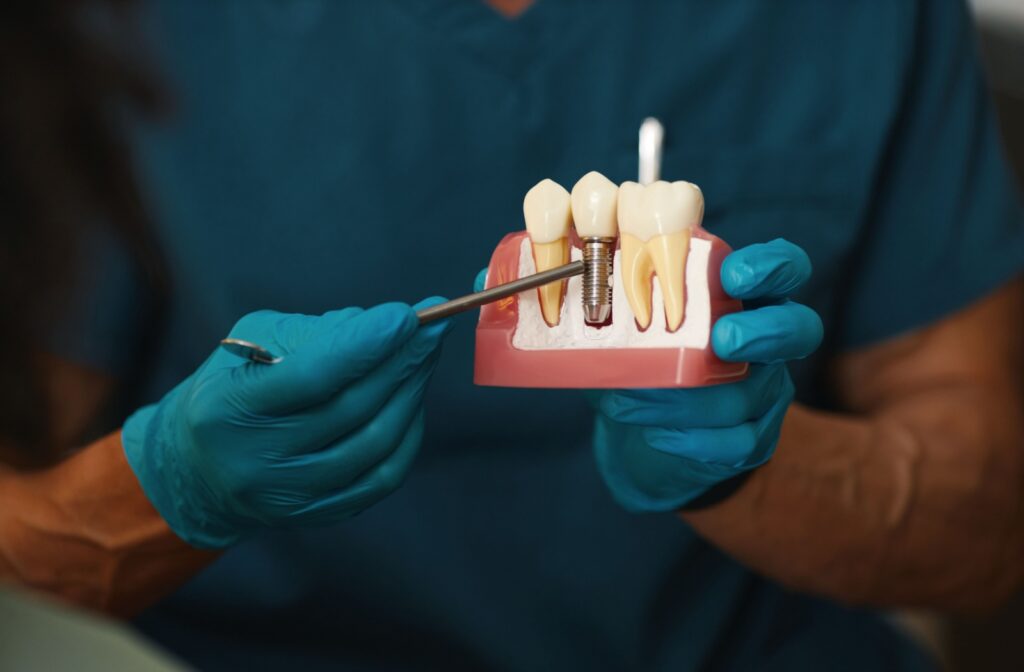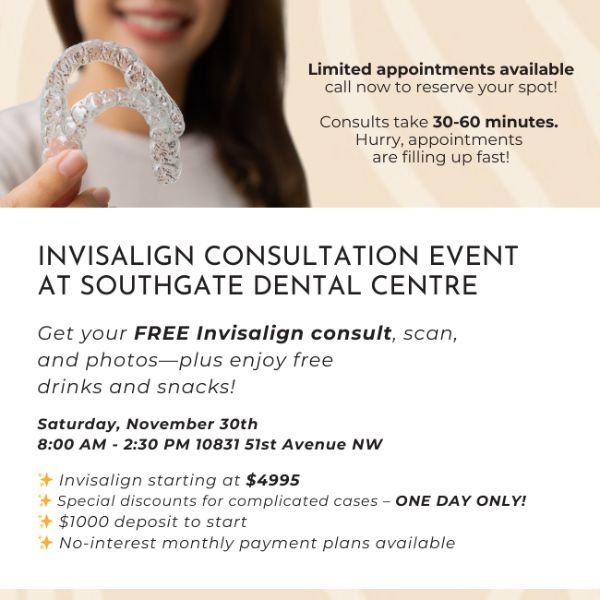If you have a missing tooth, you’re probably looking for a replacement that feels secure and looks natural. Dental implants are a popular choice, as they’re designed to function like a real tooth.
With proper care and a healthy lifestyle, dental implants can last for a long time. However, different parts of your implant tend to have different lifespans. The implant post can last for a lifetime, while the crown that’s attached to the post may need replacement after 10–20 years of normal wear.
Your daily habits and regular dental visits play a large part in the longevity of your dental implant.
What a Dental Implant Is & How It Helps
A dental implant is a tooth-sized post, usually made of titanium, that your dentist places into your jawbone where a tooth is missing. It acts as a new root for a replacement tooth. This creates a strong base that holds a custom-made crown, bridge, or denture in place.
Over the months following surgery, your alveolar bone (jawbone) naturally fuses with the implant post. This process, known as osseointegration, creates a stable and secure foundation that allows your implant to feel and function much like a natural tooth.
The Lifespan of Implants & Crowns
The dental implant post is made from durable, biocompatible material, which means that your body will accept it. These posts are designed to be a long-term solution for a missing tooth. Many people keep their implant posts for 25 years or even a lifetime with consistent care.
The crown, the part that looks like a tooth and sits on top of the implant, is also quite durable. However, it takes on the daily pressures of chewing and biting. Because of this, a crown may need replacement from wear after about 10 to 20 years.
What Happens to Implants After 20 Years?
After two decades, a well-maintained implant post is often still securely bonded with your jawbone. The main thing to monitor is the condition of the crown. Regular check-ups with your dentist allow them to check the health of the implant, bone, and crown over the years.
The Dental Implant Procedure, Step-By-Step
Getting a dental implant involves a few key steps spread out over several months. Your dental team works with you to create a personalized plan that fits your needs. Your dentist will walk you through each part of the process.
- The Implant Placement: First, your dentist places the small titanium post into your jawbone during a straightforward procedure. This post will serve as the new root for your tooth.
- The Healing Period: Next, you’ll have a healing period that can last 3–6 months. During this time, your jawbone grows around and bonds with the implant, making it secure.
- Attach The New Tooth: Once the implant is firmly integrated with your bone, you’ll return for a follow-up appointment. Your dentist will attach a small connector piece, called an abutment, then they’ll place your new, custom-made crown on top.

Maintain Your Implant for Lasting Results
The long-term success of your dental implant depends on how you care for it. Good habits and regular professional care can help your implant last for many years. Think of it as a partnership between you and your dental team.
Proper Oral Care & Hygiene
Your daily oral hygiene routine is the foundation for a healthy implant. Brushing twice a day with a soft-bristled toothbrush helps remove plaque from the implant crown and around the gumline. This helps prevent inflammation and keeps the supporting tissues healthy.
Flossing daily is also important for implant care. Make sure to clean around the implant post where it meets the gums. Special tools like floss threaders or water flossers can help you clean these hard-to-reach areas effectively.
Lifestyle Choices & Overall Health
Certain lifestyle habits can affect your implant’s longevity. Smoking, for example, can slow down healing and reduce blood flow to your gums, which may impact the health of the implant site. The connection between oral and overall health is significant, so taking care of your body with a balanced diet supports your mouth, too.
Some medical conditions, like uncontrolled diabetes, can influence how your body heals and accepts the implant. It’s helpful to discuss your full health history with your dentist. This allows them to create a care plan that works for you.
Protect from Teeth Grinding or Clenching
If you grind or clench your teeth (a condition called bruxism), especially at night, this can put a lot of pressure on your implant. The constant force can sometimes cause damage to the implant post or the crown over time.
If your dentist suspects you grind your teeth, they may suggest a custom night guard. This oral appliance provides a cushion between your upper and lower teeth. It helps protect not only your implant, but your natural teeth as well.
What to Know About a Possible Implant Problem
Dental implants have the highest rate of success of all dental procedures, but sometimes problems can occur. It’s helpful to know what signs to look for so you can contact your dentist right away. Addressing issues early can make a big difference in outcomes.
Signs of an Implant Problem
Let your dentist know if you experience any of these signs. They can help find the cause and suggest a solution. It’s always better to check in if you feel something isn’t right.
- Pain or discomfort when you bite or chew
- An implant that feels loose or moves at all
- Red, swollen, or bleeding gums around the implant
- Pus or other signs of infection near the implant site
Can You Replace a Failed Implant?
In many situations, a failed implant can be removed and replaced. Your dentist will first need to find out why the implant failed. They will want to address that issue before trying again.
For example, if gum disease was the cause, it would need to be treated first. If there was bone loss, a bone graft procedure might be needed to create a solid foundation. Once the area is healthy, your dentist can discuss placing a new implant.
Trusted Dental Care at Southgate Dental Centre
Your comfort and satisfaction matter, so if you’re looking for a dentist in South Edmonton, we’re here to help. At Southgate Dental Centre, our team is dedicated to providing comprehensive care and patient education. Come connect with us to discuss your dental health goals.



